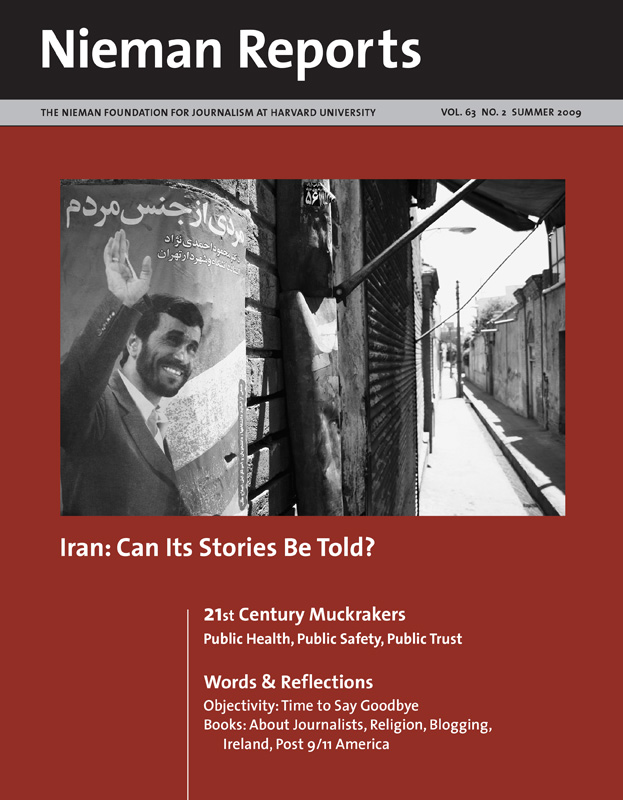Fatima Tlisova witnessed the injustice of villagers being poisoned by pollution from a nuclear lab nearby; she reported their story in a place where journalists risk their lives for sharing truths considered harmful to those in power. When she learned about displaced people confined to a camp for 14 years, she took photographs of their Russian passports to display the empty space where official stamps should be.
As an investigative journalist in the North Caucasus region of Russia, Tlisova’s series of reports about poisoned villagers, in time, persuaded the government to bring medical care. In letters written to her, Tlisova found out that stamps refused for 14 years now had been given, and these people were homeless no longer.
“Tonight we bear witness to the widowed mother of two who through sheer excellence of her craft shed light on this place,” said David Jackson, a Chicago Tribune investigative reporter and 2009 Nieman Fellow, in bestowing the Nieman Foundation’s 29th Louis M. Lyons Award for Conscience and Integrity in Journalism honors on Nieman classmate Fatima Tlisova. He described Tlisova as a reporter “who packed her crisp, dispassionate AP reports with irrefutable detail. Whose hand-held video camera cast its ghostly light across a truckload of entwined corpses. Who reported being abducted by local officers of the Federal Security Service, dragged by her hair into the woods. Had her fingertips burned with cigarettes ‘so that you can write better.’ Who, one panicked day, finally located her 16-year-old son in the custody of local police—drunken thugs in uniforms, men with guns and secret lists.”
As Niemans, Tlisova observed, “We had many conversations on journalism and its future. Is it really worth all the sacrifices we have to make? Do people really need what we do?” In response, she gave examples of what happened because she’d borne witness, a few described above. “Fifty-eight prisoners in Nalchik [a city in the Caucasus region] told their lawyers that the torture ended after I published photos that were taken soon after the arrest with all the horrible signs of electrocution and other types of torture.” There were others who, she said, “decided the situation is too dangerous or too hopeless. We have to try anyway. My answer to all those journalistic questions is—yes.”
As the myriad of stories in this section will reveal, “yes” is still the journalistic answer for many reporters today.



